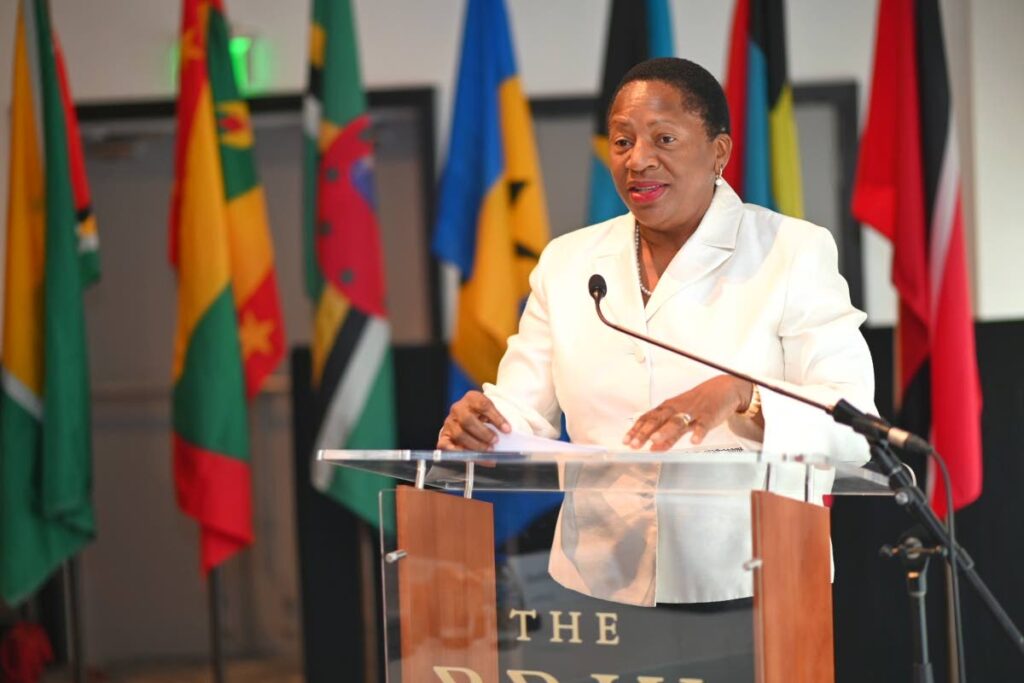Land use key to addressing climate change

LAST week’s high-level meeting of regional stakeholders on the issue of sustainable land management pointed to a potentially vital tool in addressing the issue of climate change.
“This high-level session is the starting point of implementation, since it may be seen as the catalyst for the necessary political momentum required to turn policy into action,” said Planning and Development Minister Pennelope Beckles as she addressed the forum organised by the Partnership Initiative for Sustainable Land Management (PISLM), the UN’s global collective of multi-sectoral partnerships made in support of the 17 sustainable development goals.
In attendance was PISLM executive director Calvin James, as well as Grenada’s Minister in the Ministry of Agriculture Adrian Thomas, among other officials.
At the event, Ms Beckles noted the challenges involved in bringing about sustainable land use, including the cost of adopting expensive technologies. She called for a nature-based approach that is economically flexible and that allows for allocation of funds to other areas.
“It is a long-term approach, the solutions of which require patience and consistency if efforts should bear fruit,” she said.
This is a sensible call which we endorse given the grave implications for the region posed by climate change, implications which are becoming more and more a part of our lived reality.
Just this month we were supplied with new illustrations of the ways in which climate change has been damaging our basic infrastructure in ways well beyond the obvious annual storms, floods and destructive dry season bushfires.
Rising sea-water temperatures caused by climate change have directly fed into the rapid increase in algal blooms which have choked pipelines and affected the ability of water companies to service large swathes of the country.
Meanwhile, Tobago is gearing up for yet another influx of sargassum seaweed, a matter that has become an annual rite of passage. So much so that researchers are already beginning to investigate ways that this tide can be utilised economically.
Researchers from the Department of Life Sciences, Faculty of Science and Technology at UWI have been rigorously working on developing sargassum-based products for use as crop-growth and yield-enhancing agents.
Globally, scientists continue to issue alarming warnings. The most recent warning, which for now has been described as the “final” warning that will be published by the Intergovernmental Panel on Climate Change (IPCC) as it wraps up almost half a decade of exploration of this issue, was released this month.
It is not encouraging, finding, as it does, that the world has run out of time to achieve its goal of containing global warming to just 1.5 degrees Celsius a year.
This is the fraught context in which regional collaboration and continued regional dialogue on sustainability issues must be understood. It is good to see a degree of consensus setting in among leaders, particularly as it relates to the need to increase food supply, as well as the exploration of countries like Guyana on ways of bolstering food security.
But we need more than just meetings and forums and conferences. We need better management of our landfill sites, greater efforts at forestation, and better management of our soils. In short, we need implementation.


Comments
"Land use key to addressing climate change"